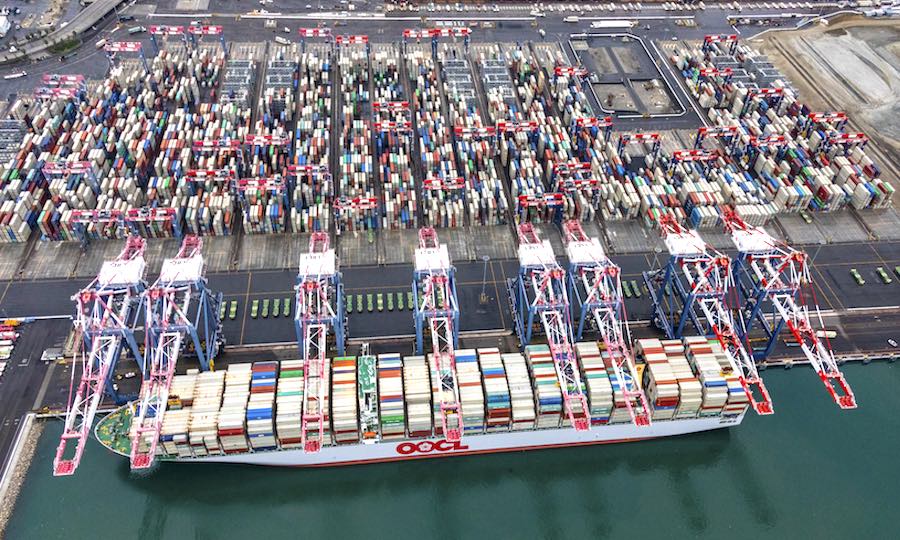Beijing vents fury at US port fees
US Shipping Fee Changes Spark Outrage in China

New regulations announced by the U.S. Trade Representative (USTR) to impose higher fees on ships linked to China are stirring significant unrest in Beijing and Hong Kong. The 42-page document, which outlines the fee structure, has drawn criticism for its ambiguous language and potential implications for global shipping dynamics. Members of the Ocean Alliance, a major grouping in container shipping, are particularly concerned about the impact on operations and costs.
Details of the New Fee Structure
The USTR’s announcement includes a tiered fee system for non-Chinese ships calling at U.S. ports. Starting from October 14, 2025, shipowners will face either a tonnage-based fee beginning at $18 per net ton, escalating to $33 by April 17, 2028, or a container-based fee starting at $120 per container, rising to $250 over the same period. Additionally, non-U.S.-built ships transporting vehicles will incur a charge of $150 per vehicle. These fees will be applicable once per voyage, with a maximum of six voyages per year.
While smaller vessels and certain domestic routes are exempt, the new rules are set to significantly impact Chinese operators, who will face initial charges of $50 per net ton, increasing by $30 annually for the next three years. According to Clarksons, only 7% of containerships are expected to be affected in 2024, a stark reduction from the 83% under earlier proposals that faced heavy criticism during public hearings.
Shipping analysts predict that the revised fee structure may disrupt container shipping but will have a limited impact on U.S. exports of crude oil, chemicals, and grains. However, car carriers could see more significant effects, as all foreign ships will be subject to the new port fees.
Reactions and Implications for Global Shipping
The World Shipping Council (WSC) has voiced strong opposition to the new fees, particularly criticizing those imposed on car carriers. Joe Kramek, the WSC president, expressed concerns that the fee regime could increase consumer prices and weaken U.S. trade while doing little to revitalize the domestic maritime industry. The WSC also raised legal issues regarding the authority of the USTR to implement such fees.
In response, Chinese shipping associations and companies like COSCO have condemned the U.S. measures, labeling them as discriminatory and harmful to fair competition in the global shipping industry. The Ministry of Commerce in Beijing has pledged to take necessary steps to protect its interests, characterizing the fees as unilateral and protectionist.
Meanwhile, shipowners in Hong Kong are contemplating reflagging vessels to avoid the new charges. The Hong Kong government has expressed its commitment to collaborate with international maritime partners to uphold free trade principles despite the perceived “bullying” by the U.S. As the shipping community navigates these changes, industry leaders are exploring innovative strategies to mitigate the impact of the new fee structure.
